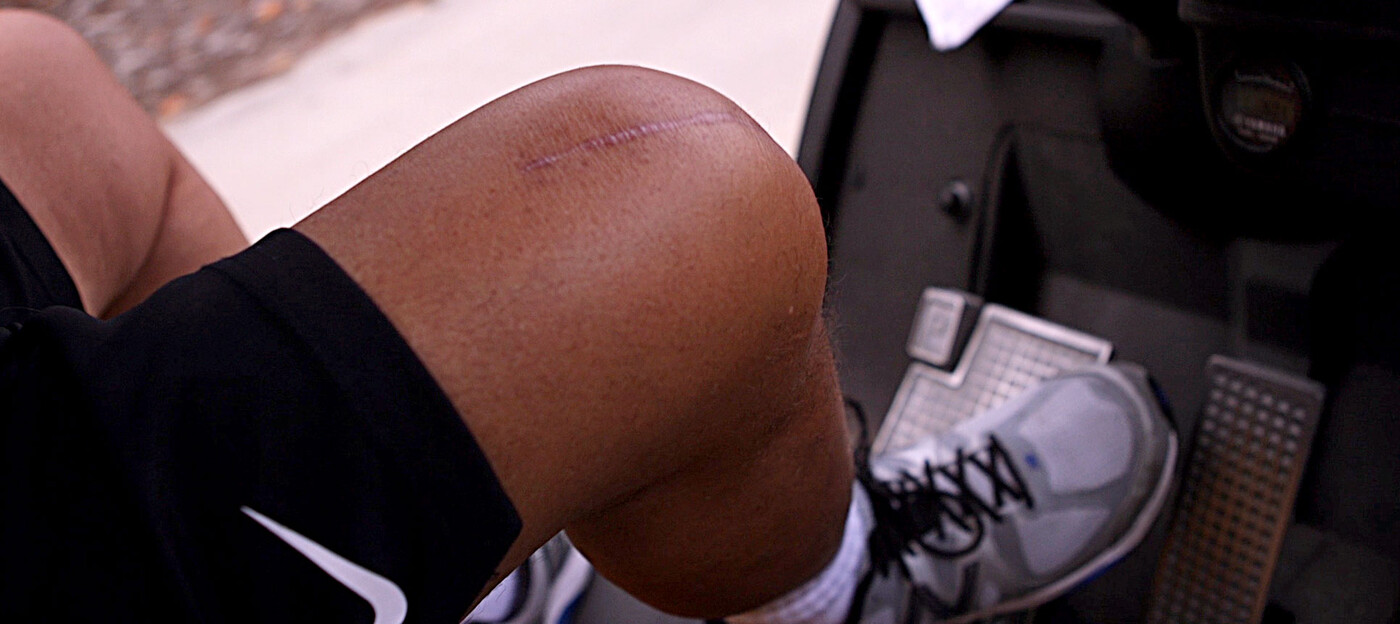Duke orthopaedic surgeons now offer some people the option to go home a few hours after knee replacement surgery. According to Michael Bolognesi, MD, a Duke orthopaedic surgeon who specializes in hip and knee replacement, the experience for patients has been “overwhelmingly positive.”
Who Needs Knee Replacement Surgery?
More than 600,000 knee replacement surgeries are performed each year, making it one of the most the most common orthopaedic surgeries in the U.S. The procedure relieves pain from osteoarthritis, which occurs when the protective cartilage in the knee breaks down with age or overuse. As a result, the bones rub together, which can eventually damage the knee joint.
Traditional knee replacement includes a hospital stay of up to three days. In recent years, surgeons found that some people do well without the hospitalization, thanks to new medicines that control bleeding, better pain management techniques, and physical therapy, which gets people up and walking soon after the surgery.
Am I a Candidate for Outpatient Knee Replacement?
Dr. Michael Bolognesi said several factors determine who may benefit from outpatient knee replacement surgery. The most important criterion is that that the person is in overall good health. Age is less of a factor. “Someone in their 70s with no other health problems could probably do as well as someone in their 50s,” Dr. Bolognesi said. People with other medical conditions, such as high blood pressure or diabetes, are less likely to be good candidates if these diseases are not well managed.
When deciding who stays in the hospital and who goes home right away, Dr. Bolognesi said he evaluates how well the patient is doing after their surgery, including whether they will be safe at home and have someone there who can provide support. Also, their pain must be under control by the time they leave the hospital.
Candidates for outpatient knee replacement also must meet another important requirement: a commitment to success. “They must ‘buy-in’ to the process,” Dr. Bolognesi said. That positive attitude can motivate them to follow post-op instructions correctly and identify problems quickly. It can also help ensure that they follow up with their caregivers for scheduled calls or visits.
Know What to Expect
To give people undergoing outpatient knee replacement the information and understanding they need, the surgical team spends extra time preparing them for what to expect. “They require a different level of pre-operative education,” Dr. Bolognesi said. A safety net includes quick telephone access to their caregivers and options for communicating with doctors via My Duke Health (previously Duke MyChart), Duke’s electronic patient portal.
Choosing the right candidate is important because there can be disadvantages to sending people home the same day, Dr. Bolognesi said. “We worry that patients may develop a complication and not let us know." The complication rate in this healthier group is low, but not zero.
“It’s important to offer this procedure, but we want to do it safely,” he said. When performed on the right person, "the positive aspects greatly outweigh the risks.”





